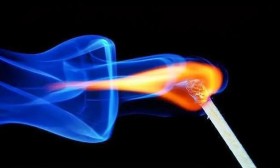Tobacco Reduces Erectile Function Response to Testosterone Therapy
Introduction
Testosterone therapy (TTh) is commonly prescribed to men with hypogonadism to improve sexual function, libido, and overall well-being. However, emerging research suggests that tobacco use may significantly diminish the efficacy of testosterone therapy, particularly concerning erectile function. This article explores the mechanisms by which tobacco interferes with testosterone's benefits, the clinical implications, and potential strategies to mitigate these effects.
The Role of Testosterone in Erectile Function
Testosterone plays a crucial role in male sexual health by:
- Enhancing nitric oxide (NO) production, which promotes vasodilation in penile tissues.
- Maintaining endothelial function, essential for proper blood flow during erection.
- Supporting libido and sexual arousal.
Men with low testosterone levels often experience erectile dysfunction (ED), and TTh can restore sexual function in many cases. However, external factors such as smoking can counteract these benefits.
How Tobacco Affects Erectile Function
Tobacco use, particularly smoking, has been linked to erectile dysfunction through multiple pathways:
1. Endothelial Dysfunction
Nicotine and other toxins in tobacco damage the endothelium, the inner lining of blood vessels. This impairs NO synthesis, reducing vasodilation and blood flow to the penis. Even with testosterone supplementation, chronic smokers may not achieve optimal erectile responses due to persistent endothelial damage.
2. Oxidative Stress and Inflammation
Tobacco smoke contains free radicals that increase oxidative stress, leading to inflammation and vascular damage. Testosterone therapy may not fully counteract these effects, as oxidative stress can degrade NO and impair smooth muscle relaxation in the penis.
3. Hormonal Disruption
Smoking has been shown to lower testosterone levels by increasing cortisol (a stress hormone) and decreasing luteinizing hormone (LH), which stimulates testosterone production. Even with exogenous testosterone, smokers may experience suboptimal hormonal balance, reducing therapy efficacy.
4. Atherosclerosis and Vascular Damage
Long-term tobacco use accelerates atherosclerosis, narrowing blood vessels and restricting penile blood flow. Testosterone therapy alone cannot reverse structural vascular damage, making it harder for smokers to regain normal erectile function.
Clinical Evidence Supporting the Interaction Between Tobacco and Testosterone Therapy
Several studies highlight the negative impact of tobacco on testosterone-induced erectile improvements:

- A 2018 study in The Journal of Sexual Medicine found that smokers on TTh had significantly lower improvements in erectile function scores compared to non-smokers.
- Research in Andrology (2020) demonstrated that nicotine exposure blunted testosterone’s vasodilatory effects in animal models, supporting the human clinical observations.
- A meta-analysis in Urology (2021) concluded that smoking was an independent predictor of poor response to testosterone therapy in men with ED.
Strategies to Improve Response to Testosterone Therapy in Smokers
For men who smoke and are undergoing testosterone therapy, the following interventions may enhance erectile function:
1. Smoking Cessation
Quitting tobacco is the most effective way to restore vascular health and improve testosterone’s benefits. Studies show that erectile function improves within months of cessation due to endothelial repair.
2. Antioxidant Supplementation
Since oxidative stress plays a key role, antioxidants like vitamin C, vitamin E, and coenzyme Q10 may help mitigate vascular damage and improve NO bioavailability.
3. PDE5 Inhibitors (e.g., Sildenafil, Tadalafil)
Combining TTh with phosphodiesterase-5 inhibitors can enhance erectile function by increasing NO effects, compensating for smoking-induced endothelial dysfunction.
4. Lifestyle Modifications
Regular exercise, a Mediterranean diet, and weight management can improve vascular health and amplify the effects of testosterone therapy.
Conclusion
While testosterone therapy is effective for improving erectile function in hypogonadal men, tobacco use significantly diminishes its benefits. Smoking-induced endothelial damage, oxidative stress, and hormonal disruptions counteract testosterone’s vasodilatory and pro-erectile effects. Clinicians should emphasize smoking cessation and adjunct therapies to optimize outcomes in men receiving TTh. Further research is needed to explore targeted interventions for smokers undergoing testosterone treatment.
By addressing tobacco use alongside testosterone therapy, men can achieve better sexual health outcomes and overall well-being.












